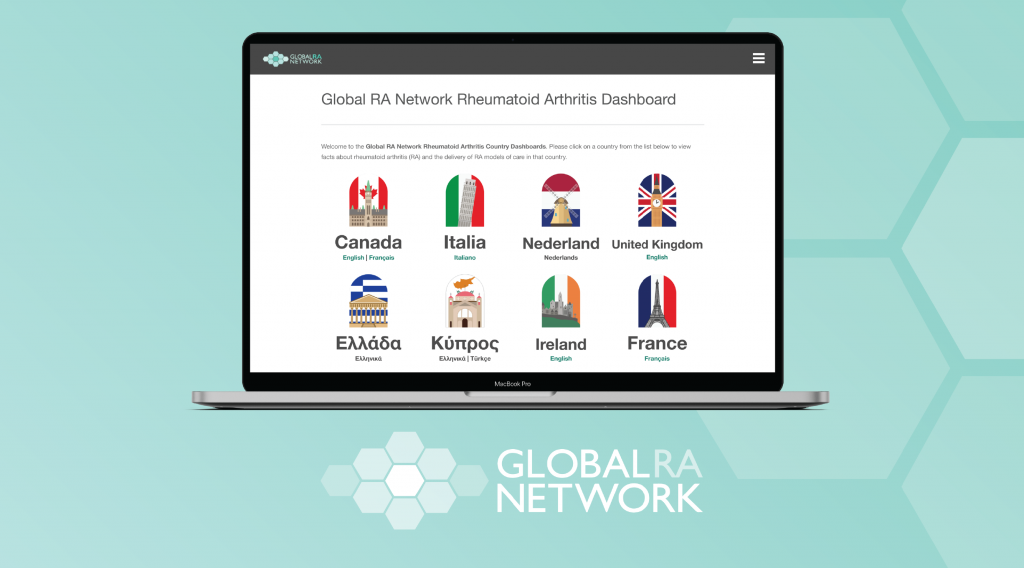
The Global RA Network (the “Network”) launched a new powerful advocacy tool – the RA Dashboard – as part of its initiatives to improve models of care for people with rheumatoid arthritis (RA). Developed in collaboration with leaders from 18 RA patient organizations, the Dashboard presents key data about the disease and the delivery of RA care and treatment in Europe and the Americas.
RA is the most common autoimmune inflammatory form of arthritis and affects approximately one in 100 persons worldwide. RA reduces a person’s quality of life and is one of the world’s leading causes of disability. Despite its prevalence and costs to societies, the RA models of care vary from country to country and many gaps and inequalities exist.
“Improving RA models of care across Europe and the Americas requires collaboration between stakeholders, including patient groups, policy experts, government and industry, alongside robust RA data. The RA Dashboard is an easy-to-use tool for visualizing the current status of RA care and for monitoring progress on key components of a country’s RA model of care,” explains Cheryl Koehn, president, Arthritis Consumer Experts, which serves as the Global RA Network’s Secretariat.
Koehn added: “Several countries in the Network reported not being able to access key RA statistics in their country for the Dashboard. In those countries, governments are either not collecting data on RA or are not making it public. If governments are not collecting and sharing data on people living with RA, they will not know the magnitude of the problems or how to fix them.”
“As we’ve learned during the pandemic, data is the evidence that drives sound health care decision-making. However, in Romania, nobody knows exactly how many RA patients there are and what RA’s socio-economic cost is. RA data that is accessible in Romania is often extrapolated from general European data but may actually not reflect the actual numbers in our country,” explained Rozalina Lapadatu, president, Asociației Pacienților cu Afecțiuni Autoimune in Romania.
Accessible via the Network’s website at https://globalranetwork.org/ra-dashboard, the Dashboard is currently available for 10 countries. The Dashboard data have been researched and collected by member associations and the Network’s Secretariat using local publicly available literature and existing open data sets of government agencies and research organizations as well as results from the Network’s international survey on models of RA care.
“The Dashboard provides an immediate picture of RA in a country like Italy and how our RA care system fares in comparison to other countries in Europe. No standardized RA model of care exists today in Europe or the Americas. This disparity leads to frustration and disappointment for RA patients whose very lives depend on getting a timely and accurate diagnosis, timely access to rheumatologists, and adequate reimbursement for medications, among other critical elements of an effective RA model of care,” commented Antonella Celano, President of Associazione Nazionale Persone con Malattie Reumatologiche e Rare (APMARR) in Italy. “For example, we’ve found 17% of RA patients in Italy waited more than three months for a first visit with a rheumatologist which is significantly above the recommended time between referral and first appointment with a rheumatologist of no more than four weeks.”
People are encouraged to join the conversation about RA, the need for more data about RA and improved RA models of care on Facebook and Twitter @GlobalRANetwork and by using #RADashboard.